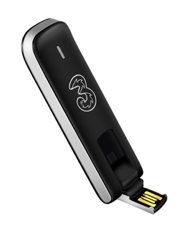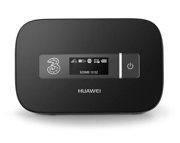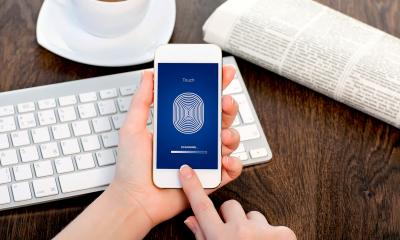
Mobile internet access is offered by many suppliers and can be delivered through a variety of devices. With such a wide choice of networks, tariffs and equipment, how do you know which is right for your business? Matt Powell from Broadband Genie takes a look at the options
4G mobile internet
Before we look at different pieces of mobile internet equipment, it's worth considering the different types of mobile connection.
3G is well-established with coverage across most of the UK, although it has been largely replaced by 4G. 4G coverage is now available to more than 90% of the UK. It offers users around 12-15mbps but can increase to more than 60mbps in some areas. These speeds are similar to many home broadband connections.
Both use mobile phone networks to get you online.
With 4G it's easier to handle demanding tasks like downloading large files or watching high-definition video because websites, maps, emails and so on will load much faster.
All the major UK mobile networks offer 4G although there are still a few remote areas where 4G is unavailable. In areas where it's not available, devices will automatically drop down to 3G, so you won't lose out. The actual speed you get will depend on where you are and how strong the signal is.
What about 5G?
5G is the next generation of mobile connectivity, and the roll out began in 2019. However, it has not been without problems. The roll out has been dogged by concerns over the health risks posed by 5G phone masts and security fears over the involvement of some Chinese tech firms.
By 'pooling' bandwidth to increase speed and range, 5G aims to meet the modern demands of mobile data use and sure-up reliability of such connections. Expected to provide average speeds of around 100 mbps, 5G will offer a sizeable jump in performance over 3G and 4G.
5G-capable devices and connectively are expected to gradually enter the market over the next few years.
Mobile internet on your laptop
 The simplest and cheapest way to get online is with a mobile internet dongle (pictured right). This small piece of equipment looks like a USB memory stick.
The simplest and cheapest way to get online is with a mobile internet dongle (pictured right). This small piece of equipment looks like a USB memory stick.
It plugs into one of the USB connections on your laptop and contains a SIM card, providing you with 3G or 4G internet on the go.
Basic USB dongles can be purchased from all the main mobile phone networks. You can get them free on contract and they're inexpensive (£20-£40) on pay-as-you-go tariffs.
However, USB dongles can only connect a single device at a time, and only generally work with laptops, not tablets.
Typically, mobile internet access via a dongle on a contract is a cost-effective option if you plan to use it regularly.
If you only need occasional mobile internet access then a pay as you go service will almost certainly be better value.
Mobile internet on your tablet
 If you want a connection that can be shared between several devices or used with a tablet computer then it's worth opting for a portable access point (pictured right).
If you want a connection that can be shared between several devices or used with a tablet computer then it's worth opting for a portable access point (pictured right).
Sometimes called MiFi or pocket Wi-Fi, these provide a local wireless network that any Wi-Fi device can use to connect to the internet. This means you can use them with a tablet, smartphone or games console as well as a laptop.
Portable access points are pricier than USB dongles, but give you more flexibility to get your iPad or Android tablet online.
If you'd rather not carry around another gadget, and only require mobile internet access on your tablet, then you may want to purchase a tablet with mobile data built in.
The iPad and many Android devices are available with optional SIM card slots for mobile internet access. When coupled with a compatible SIM you don't need anything else.
Tablets with mobile broadband built in tend to be more expensive than Wi-Fi only models. However, you can sometimes get a tablet free when you buy it as part of a mobile internet contract.
Mobile internet on your smartphone and tethering
As you'd expect, all smartphones have a mobile internet internet connection.
You may not be aware that you can also use your smartphone an alternative to a portable access point. Many models offer wireless tethering, so other devices can latch onto their internet connection.
Tethering is usually easy to set up, but can run your phone's battery down quickly and quickly eat into data allowances.
Always check with your mobile network before turning on the tethering function. Some contracts don't permit tethering. Others will make you pay an additional fee.


